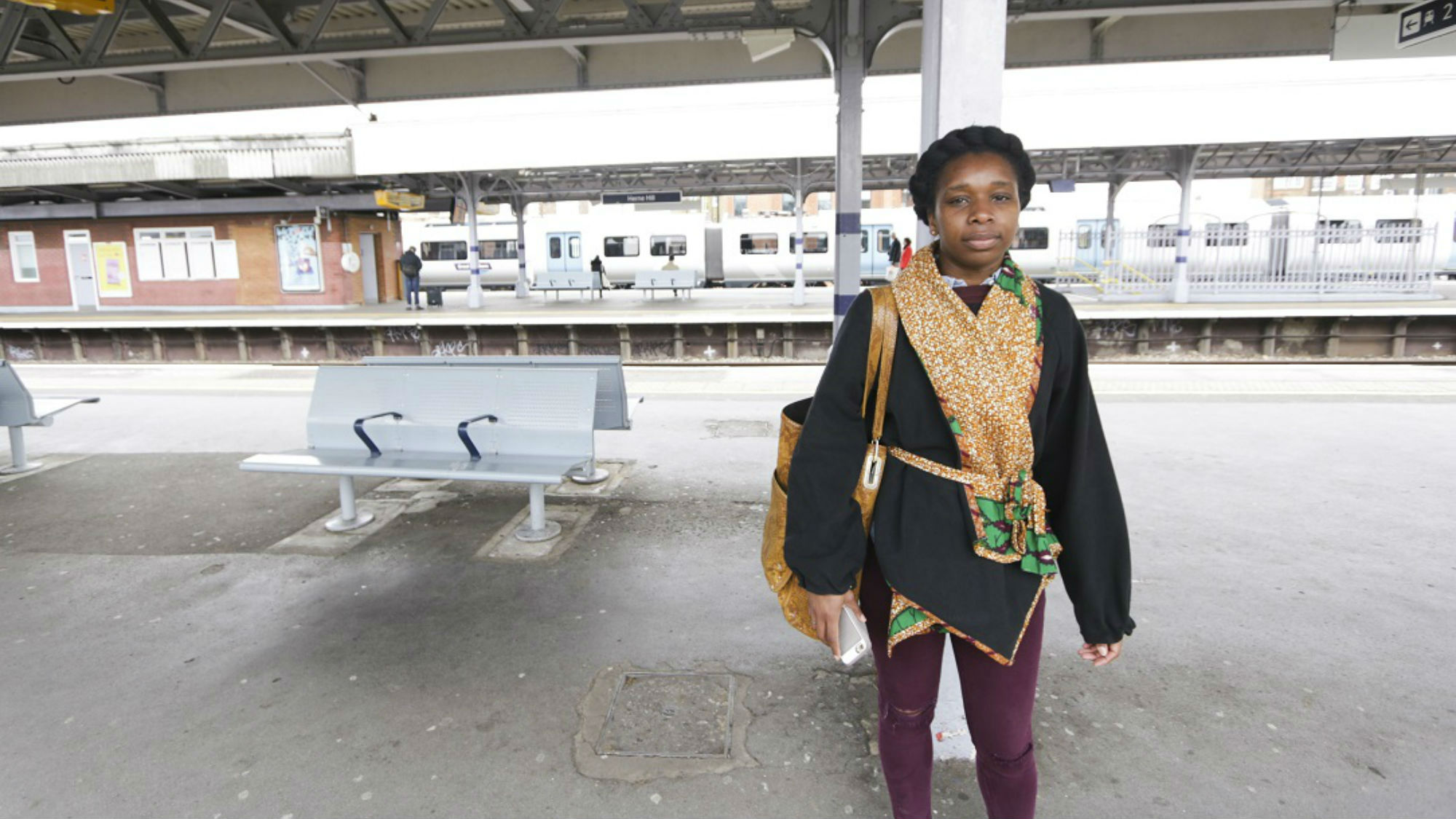'I was a child caring for a mum with schizophrenia'
As a child carer, Mary Adeson's health deteriorated as she prioritised the needs of her schizophrenic mum. Today she shares her selfless story for Carers Rights Day, which helps young people get the support they desperately need

As a child carer, Mary Adeson's health deteriorated as she prioritised the needs of her schizophrenic mum. Today she shares her selfless story for Carers Rights Day, which helps young people get the support they desperately need
'I’ve been a carer since I was 12 years old. At the time I didn’t realise that was my role, because to me I was just looking after someone I cared about. I did it without being asked.
As a child, my role as a carer wasn’t actually looking after my mum. It was more about caring for my twin, younger sister and myself. We didn’t want to be a burden to mum, so we would take away daily pressures from her - like ironing our school uniforms; making our own meals and trying our best at school. I’ll never forget the fear of arriving home and wondering what type of mood mum was in. Why, you may ask? My mum has schizophrenia.
And it didn’t matter what we did to make mum's life easier - the ending would often always be the same: hospital. One symptom of being schizophrenic is delusions, and mum’s fantasies (being pregnant, for example), would eventually push us to desperation and we’d have to call the police, or the ambulance. Still, we never thought our mum had a mental health disorder. We just thought she was prone to feeling down and behaving erratically and sometimes aggressively.
Why wasn’t she diagnosed sooner? Mental health and social care services are notoriously short staffed and under resourced. She would check in, stay for the required period of time (no longer than six weeks), and once stable and on medication she would be allowed back into the community, without a great deal of follow up.
Mum wasn’t diagnosed until I was 18 and at university studying accounting and management That was also the time I fully understood that I had taken on the role as a carer from childhood, and spoke about my situation with someone other than my sisters. My tutor picked up on the fact I was living in student accommodation, but commuting daily from Reading to London to oversee family life, and she offered a non-judgemental ear as well as the offer of essay extensions if needed.
At school I learnt how to stay under the radar, but I wished someone had sincerely asked me why I was staying late to avoid going home, and spending time alone instead of with the other girls at school. By the time I was finishing my school years we started cooperating with social services and they became present in our lives, but the situation was never severe enough to be removed from home or placed into care.
Marie Claire Newsletter
Celebrity news, beauty, fashion advice, and fascinating features, delivered straight to your inbox!
It's fair to say that family support was very minimal. My dad wasn't in the picture and I think the fact that I am British Nigerian also played a part in how we dealt with mum’s situation, as only in the past few years have people started to accept mental health and speak about it. In terms of schizophrenia being hereditary, the mental illness does run in the family on my mum’s side, but because for so many years people haven’t gone on record or been diagnosed, it’s hard to know how present the gene is. There are blood tests available for schizophrenia, which I will consider if I want to have a baby in the future.
Today, I'm 32 and live with my mum, who is 57, and my youngest sister in south London. We have a stable routine – I work full-time as an auditor, and she is self-sufficient until I get home and cook dinner. We’ve never claimed a carers allowance because I’ve always made sure I’ve worked and got everything covered - plus I know what limited resources there are. I’m also fortunate, so to speak, as my mum doesn’t require 24-hour care and I’m able to leave the house and earn a living.
The biggest challenge we still face is mum not accepting she’s ill. This used to mean she would stop taking her medication, resulting in the extreme delusions, but now her medication is injected by her GP every six to eight weeks. On the weekend my twin sister, who doesn’t live with us anymore, looks after mum, and I have a much-needed break.
I try not to think about what life would be like without mum’s illness. I take positives from the situation - I’m resilient - but caring for her has affected my mental wellbeing. Five years ago I developed pulmonary arterial hypertension. Put simply, the arteries around my heart and lungs have blockages. I used to internalise a lot and my consultant said it’s not a surprise that I developed these health issues, and he has said I’ll need to have surgery in the future to remove the blockages.
Fortunately, my sisters have not suffered any health issues, but over the years we have all regularly seen a counsellor to ensure we don’t become depressed and bottle emotions up. My other outlets include golf and reading the Carers UK forum. Even though I had my siblings growing up I still felt isolated (8 in 10 people caring for loved ones say they have felt lonely and 74% of carers feel their caring role isn't understood or valued by their community). Sometimes it was an unbearable feeling. Now I talk on forums and I don’t feel alone or trapped.
I’m currently single but because I’ve never wanted to regret any part of my life, I’ve always made sure not to miss out on dates. But I do think my role as a carer has shaped who I’m attracted to – I like independent men and I don’t expect them to be my ‘rock’.
My advice to carers is look after yourself first. I learnt that the hard way. And don’t let life pass you by. If you do, resentment could come knocking.'
If this issue affects you or a loved one, or to find out more information about Carers Rights Day, visit carersuk.org
Did you know?
- Across the UK today 6.5 million people are carers, supporting a loved one who is older, disabled or seriously ill.
- Every day 6,000 people take on a caring responsibility.
- Carers save the economy £132 billion per year, an average of £19,336 per carer.
- 1 in 7 of the UK workforce is also caring unpaid for a family member or friend.
- 72% of carers suffer mental ill health as a result of caring. 61% said they had suffered physical ill health as a result of caring.
Olivia – who rebranded as Liv a few years ago – is a freelance digital writer at Marie Claire UK. She recently swapped guaranteed sunshine and a tax-free salary in Dubai for London’s constant cloud and overpriced public transport. During her time in the Middle East, Olivia worked for international titles including Cosmopolitan, HELLO! and Grazia. She transitioned from celebrity weekly magazine new! in London, where she worked as the publication’s Fitness & Food editor. Unsurprisingly, she likes fitness and food, and also enjoys hoarding beauty products and recycling.
-
 Penn Badgley and Blake Lively kept their breakup a secret from the Gossip Girl cast and crew - here's what we know about their former relationship
Penn Badgley and Blake Lively kept their breakup a secret from the Gossip Girl cast and crew - here's what we know about their former relationshipBy Jenny Proudfoot
-
 Spring has finally sprung - 6 best outdoor workouts that are totally free and boost both body and mind
Spring has finally sprung - 6 best outdoor workouts that are totally free and boost both body and mindSoak in the nature and boost Vitamin D *and* endorphins.
By Anna Bartter
-
 This iconic rose perfume is a compliment magnet—it makes me feel ‘put together’ after just one spritz
This iconic rose perfume is a compliment magnet—it makes me feel ‘put together’ after just one spritzGrown-up and elegant, yet not at all dated.
By Denise Primbet